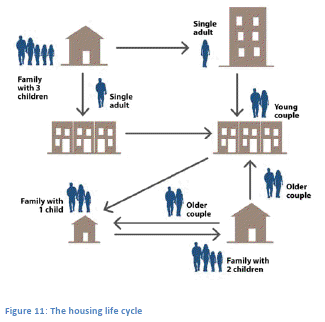(A)sexual the movie is on Netflix now so I watched it last night while I couldn’t sleep. In high school I started to explore my own asexuality and found AVEN, the Asexuality Visibility Network. I remember reading an article about David Jay, and being relieved to find a label that worked for me, that seemed to define my position on the sexuality spectrum. But like sex, asexuality just didn’t seem to hold my interest. In college I was too busy studying to worry about caring about my sexuality, it really never seemed that important to me. Lately I’ve been exploring the possibility of sexuality for myself, but seeing the movie gave me a sense of relief, to reinforce that there’s nothing wrong with asexuality in our sexualized society was really powerful and comforting to me.
I was reading about the 10 Most Common Reactions to Asexuality. One thing that’s important for me, but that I didn’t hear expressed in the movie, is that while these are not what define asexuality, you can be asexual for zero, any and all of those reasons. Maybe you’re ugly, repressed, have a hormone problem, and hate men because of sexual trauma. So what? If you’re not interested in sex you get to call yourself an asexual, and if you want you can explore your asexuality with others you should be able to do so.
I thought the movie was really interesting, and a great starting point for asexuality education. I was surprised and disappointed to find the link between asexuality and aspergers because for me it seemed to reinforce a stereotype that asexuals (a word spellcheck doesn’t recognize) are just too socially awkward to find dates. I think the reason David Jay has become such a good spokesperson for asexuality, and why I was drawn to him and the movement, is that he is conventionally attractive and socially adept; showing that his asexuality is a choice, not just the result of social ineptitude. (The article I read in high school described David Jay as having Kennedy-esque good looks and as being extremely well spoken.)
The movie showed many different types of asexuals but in doing so associated asexuality with a wacky freakishness that kept me from using the label for myself (eg. I had to fast forward while a woman hammers a nail into her face). So one drawback of the movie for me was an embracing of a certain kind of diversity, but, with classic human narcissism, what I found lacking were representations of me, and my own type of diversity. As far as I can recall there were 3 black people in the movie, 2 bigoted black guys at the beginning who didn’t believe asexuals existed and one ‘naturally celibate’ woman at the end.
I was also disappointed by Dan Savage’s comments which seemed to undermine the community. His view is that people who are asexual need to disclose this to any potential partner and should not be in relationships with sexual people. His idea is that it’s asexual people don’t need a movement because there isn’t real stigma associated with it, just go do that on your own, no one cares. His second point seemed to really undermine the first point though because without a movement to identify asexuality you wouldn’t know what to disclose at the beginning of a relationship. So many people don’t identify as asexual because they don’t know it exists, if you want people to self identify and remove themselves from the dating pool, or whatever, they need to understand and identify with the language and the language doesn’t develop without a community. That’s what I think, at least. I agree with Dan Savage so much, which is why I was so disappointed that he isn’t supportive of my part of the sexual spectrum.
Asexuality is difficult to define as a sexual orientation precisely because it is non-sexual, you could almost describe asexuality as the right to be left alone if you want to be. SPOILER ALERT Ultimately I found the end of the movie to be pretty sad. To find that David Jay thinks he won’t be able to have a meaningful relationship or raise a child without a somewhat sexual relationship made me really disappointed, but this is the subject of another blogpost to come.
P.S. I don’t want people to think I’m hating on the woman who hammers a nail into her face, she seemed pretty awesome. Aside from just liking her hair and her style and she said one of the things I most identified with in the movie, she said that before learning about asexuality she just thought that she was going to have to have sex at some point but that the thought was so repulsive to her that she figured she would have to drink herself into a stupor beforehand. This is exactly how I have always felt and it felt really refreshing to hear this expressed, and to see her in a relationship with someone who respected and heard this from her. The only other time I’ve heard this sentiment expressed is by a lesbian talking about straight sex, and I never identified as a lesbian. Anyway, it’s always nice to hear you’re not alone.
